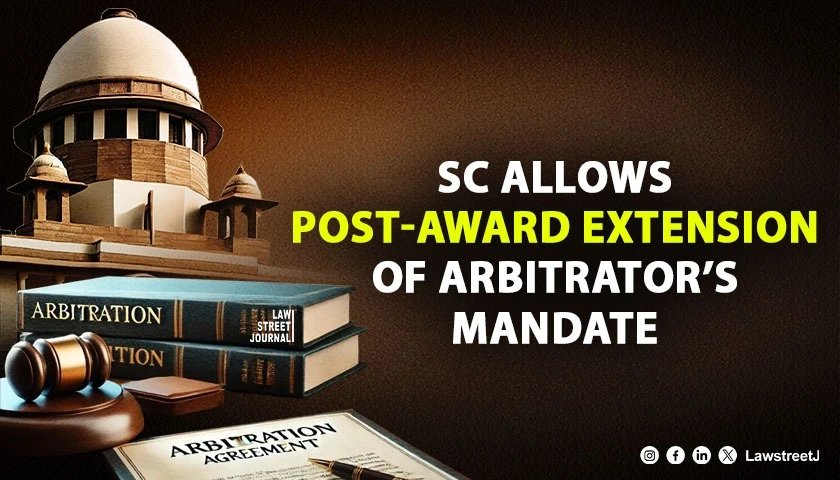Malik Ubaidullah filed a writ petition in the Lahore HC challenging the selection process under Disability Quota. His writ petition was dismissed for which he filed an appeal which was also dismissed.
Malik Ubaidullah applied for the post of Senior Elementary School Educator Arabic (SESE) on the disability quota in pursuance to the advertisement put out by the Education Department, Local Government, and Multan.
A total of 81 posts of SESE [Arabic] were advertised with 42 posts in the female category and 39 posts in the male category at the girls' and boys' schools respectively. Only Mst. Asma Quasim was appointed under the said post under disability quota and a petitioner failed to secure a position. Aggrieved by this he filed the petition which got dismissed.
The petitioner filed an appeal to the SC where the court recorded the legal question in the case the manner of allocation of 2% disability quota for employment under the Disabled Persons (Employment and Rehabilitation) Ordinance, 1981.
A three-member bench comprising Justice Manzoor Ahmad Malik, Justice Syed Mansoor Ali Shah and Justice Qazi Muhammad Amin heard the appeal and reserved the judgment last month.
To understand the allocation mechanism the court noted the concept of disability and the importance of the role of employment in the lives of persons with disabilities (PWDs). The court said that there are two main threads to the concept of disability the medical and social model.
The social model looks at the systematic barrier, negative attitudes, and exclusion by the society while the medical model looks at the health-related factors which can be identified and eradicated through medical treatment.
On the point of employment, the court noted that one of the major difficulties faced by persons with disabilities is that employers have the erroneous assumption that these people will probably underperform in most areas of their duties, something which is not the case and also a majority of workplaces are not made accessible to people with disabilities because the employers feel that they will have to make an unwarranted investment to provide facilities for people with disabilities.
Pakistan in 2011 ratified a convention The UN Convention on the Rights of Persons with Disabilities of 2006 (CRPD or Convention) which creates a binding framework for the rights-based model of disability law.
The court examined the relevant provisions of the Ordinance (Disabled Persons (Employment and Rehabilitation) Ordinance, 1981) to understand the importance of employment in the lives of PWDs. Section 10 of the Ordinance provides that not less than 2% of the total number of persons employed by an establishment at any time shall be PWDs. The total number of persons employed means the total sanctioned posts of the establishment, i.e., an Organization, Authority, Department, or Ministry. 2% of the total sanctioned posts or workforce of the establishment becomes the Disability Quota for the establishment.
The court summaries employment in five major points: -
The 2% (and now 3%) 24 Disability Quota is to be calculated on the basis of the total sanctioned posts of the establishment.
In order to ensure fair and equitable representation of persons with disabilities (PWDs) in every tier of the establishment, the total Disability Quota is to be further apportioned and allocated amongst different categories of posts in the establishment.
In case the sanctioned strength of a post is less than 50, it will be for the establishment to allocate seat(s) from the overall Disability Quota against such a post.
If a particular post is not fit for a PWD, the establishment may shift the Disability Quota and adjust it against another post in the establishment so that the overall Disability Quota is not disturbed and maintained at all times.
The advertisement for any category of the post must clearly provide the total Disability Quota for that category of posts and the number of seats vacant.
The Supreme Court of Pakistan has directed the federal government and provinces to discontinue using the words disabled, physically handicapped and mentally retarded for people with different abilities. The apex court released its detailed judgment in which they commented that these words deeply affect and offend the human dignity of people with different disabilities.
The court said Pakistans Constitution, as a whole, does not distinguish between a person with or without disabilities. It recognizes the inherent dignity of a human being; equal and inalienable rights of all the people as the foundation of freedom, justice, and peace.
The court (SC) instructed both federal and provincial governments to immediately discontinue the use of these words in official correspondence, directives, notifications, and circulars and alternatively either use persons with disabilities or persons with different abilities.
In the last, the court directed the respondents to reconsider the case of the petitioner, preferably along with the other applicants with disabilities who had applied for the said posts (if they can be reached out) and fill the Disability Quota for SESE [Arabic] only if the petitioner and other applicants (if any) meet the selection criteria fixed for the said post.

![Pakistan SC Bars Government from Using Words Offensive To Persons With Disabilities [READ JUDGMENT]](/secure/uploads/2020/08/lj_6061_sp.jpg)






